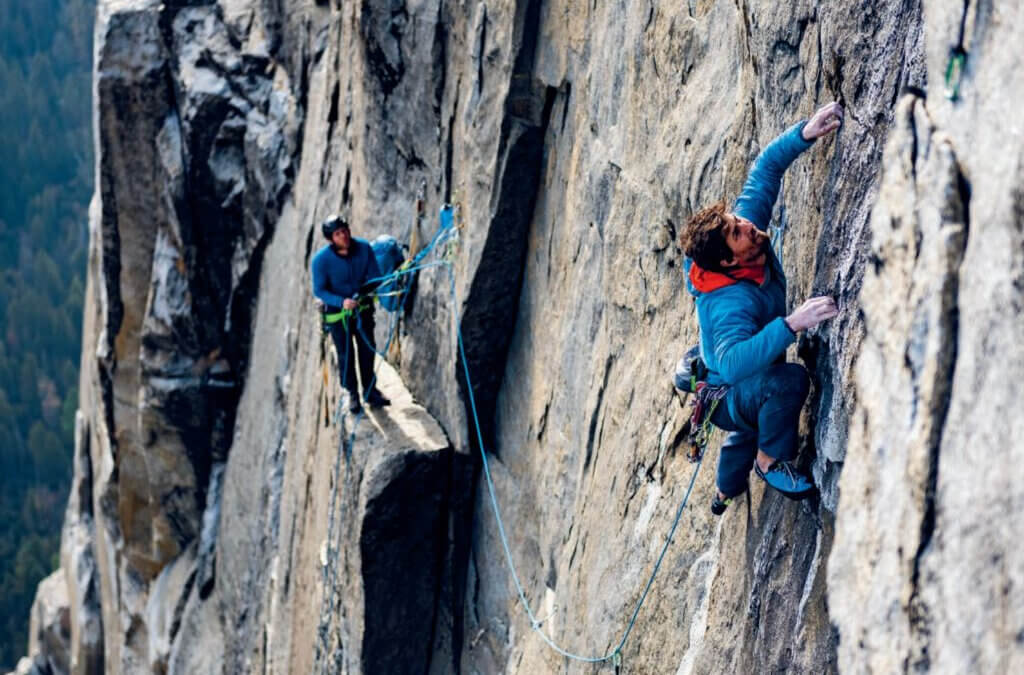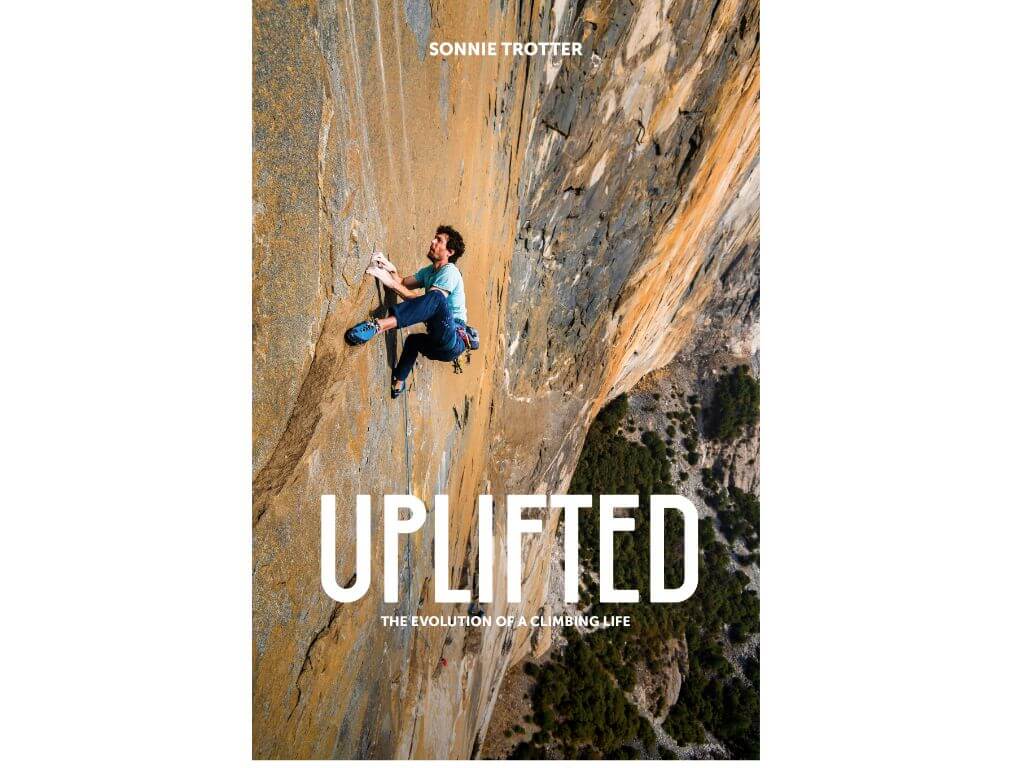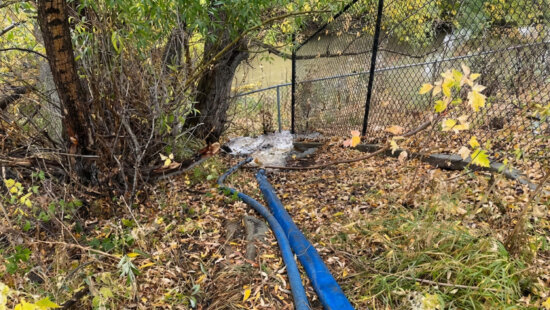Community
Legendary rock climber Sonnie Trotter coming to Patagonia SLC Oct. 1

Climber Sonnie Trotter leads a pitch on a towering granite wall while a partner belays from a ledge. Trotter will present his new memoir, Uplifted: The Evolution of a Climbing Life, at Patagonia Salt Lake City on Oct. 1. Photo: Sonnie Trotter
PARK CITY, Utah — For more than two decades, Canadian rock climber Sonnie Trotter has built a reputation as one of the sport’s most accomplished and positive figures. Known for bold first ascents such as Cobra Crack in British Columbia, Trotter has logged roughly 5,000 days on rock faces around the world. But as he shares in his new memoir, Uplifted: The Evolution of a Climbing Life, his relationship with risk—and with climbing itself—has shifted.
“In my 20s and 30s, I was willing to get hurt for something,” Trotter said in an interview. “But now, as a father, even a sprained ankle makes parenting harder. My willingness to get hurt for climbing has pretty much plummeted. I’m choosing to be there for my kids over the consequence of a bad decision.”
That recalibration of risk anchors Uplifted (Patagonia, May 2025), which blends tales of groundbreaking ascents with candid reflections on parenting, community, and change. The book details milestones, such as his first free ascent of Cobra Crack, a climb widely regarded as one of the hardest cracks in the world. While the accomplishment propelled him into the spotlight, Trotter said the most rewarding part has been watching a new generation of climbers take it on.
“Cobra Crack is the star,” he said. “I just happened to be the person who brought it to life. The best part is seeing young, hungry, inspired climbers enjoy it now.”
The memoir also touches on broader changes shaping the climbing world. In Squamish, Trotter has witnessed record-breaking heatwaves, droughts, and rockfalls. “Our community is very in tune with climate change,” he said. “We see it firsthand. The glaciers are receding, ski seasons are getting shorter, and summers are getting hotter. It’s talked about much more openly now than it was 25 years ago.”

Though often drawn to solitude, Trotter emphasized that camaraderie remains at climbing’s core. “The magical part of having an activity you feel connected to lifelong is that you create these lifelong friendships,” he said. “I’m still in touch with my climbing friends from 30 years ago.”
Today, he and his wife, Lydia, balance raising two children with life in a small Canadian mountain town, which they chose for its proximity to climbing. They still travel together, often meeting up with fellow climbers-turned-parents whose kids have grown alongside their own. “It’s not all that different, other than scheduling around the kids,” Trotter said.
Writing the book, he admitted, was its own test of endurance. “I learned that I have a hard time sitting still,” he said with a laugh. “I could only write in two-hour blocks before needing to run or get outside. It took longer than I thought, but I wanted it to feel like a collection of short stories—something people could pick up, read a chapter, and put down without feeling committed.”
Trotter will present Uplifted: The Evolution of a Climbing Life at Patagonia Salt Lake City on Oct. 1 at 7:30 p.m. The free event will include a Q&A and book signing.



















